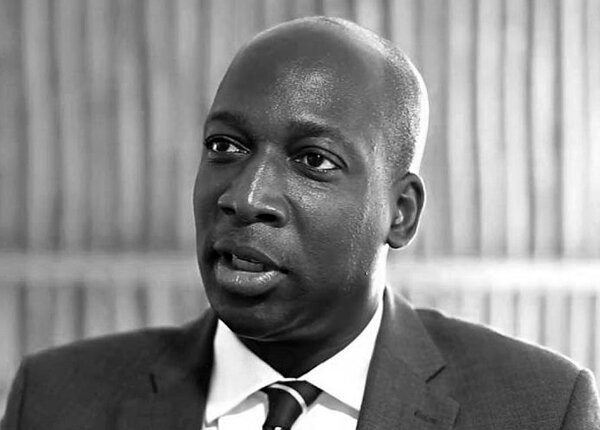A non-Executive Director at Development Bank Ghana (DBG), Yaw Nsarkoh, has warned that efforts toward sustainable development and combatting corruption are at risk due to the continuous influx of foreign funds into domestic politics.
Known for its democratic stability and commitment to sustainable development, Ghana has long been a shining example on the continent. However, he warned that the newfound intrusion of foreign funds – along with monetisation of politics at the expense of ideas – raises concerns.
According to a recent report funded by Adam Smith International (ASI) and conducted by the Centre for Democratic Development (CDD-Ghana), running for president in Ghana now requires a massive US$100million.
Citing this disconcerting revelation, Mr. Nsarko – former Executive Vice President-Unilever Ghana and Nigeria who also has a background in chemical engineering – delivered a cautionary message during the annual ethics lecture hosted by the Ghana Institution of Engineering (GhIE) in Accra.
He warned: “Excessive over-monetisation of our political landscape is dangerous, as it not only erodes the foundations of democracy, good governance and the rule of law, but also inflicts adverse consequences on economic and social development.
“This neoliberal democracy will lead us to mortgage our sovereignty if we do nothing,” Mr. Nsarko said while delivering a lecture on the theme ‘Improving National Values; Professional Practice and Engineering Ethics’.
“We are heading toward being a narco-state, for there are now much more than subtle hints that massive flows from the international narcotic trade are being laundered in our country’s democracy,” he added.
Comprehensive mindset revolution
To address this concerning trend, Mr. Nsarko emphasised the necessity for a “comprehensive mindset revolution”, as the ongoing monetisation of the nation’s democracy cannot support meaningful development efforts.
“We cannot sit and watch our politicians raise such funds every four years and still expect them to be honest. We have become the society that expects politicians to turn up at church harvests, durbars, birthday parties, funerals, weddings, outdooring, events of their alma maters, events of their professional associations to make substantial donations.
“We know the salaries of these public officials. Yet we ask no questions about their source of funds. Where do they get such money to make these donations so frequently and regularly, as well as fund their ostentatious lifestyles? By not asking the right questions, we – all of us – have become collaborators. We are dripping with the guilt that characterises elite compromise,” Mr. Nsarko stated.
He said the time has come for professional associations like the GhEI and others to speak up against over-monetisation of the country’s democracy and the continuous influx of foreign campaign financing.
“For as long as we do nothing about political campaign funding, we are stuck with egregious corruption. And keep in mind that corruption denies the majority of our compatriots’ dignity, because it deprives them of social services they deserve,” Mr. Nsarko further pointed out.
Time to restore national value
The Chief Justice, Her Ladyship Justice Gertrude Torkornoo – who served as Chairperson, on her part emphasised that restoring morality and ethics is essential in addressing challenges facing the country.
She expressed deep concern over the erosion of morality in society, attributing it to expansion of the global community through the Internet. As a result, she noted, the broader a person’s worldview becomes, the more incoherent the conversations about morality and ethics can get.
“The danger to national survival cannot be overestimated in this cacophony. There’s a pressing imperative to restore an overview, at least, of national values; and to recognise the national good as greater than individual gratification,” she stated.
She continued: “Without an ethical anchor the economy frails, breaks in the hands of its infrastructure developers. It’s only fitting that [GhIE] stimulates a national conversation on a matter that has always been critical to our well-being as a nation”.
Responsibility
GhIE president, Ing Kwabena Bempong, FGhIE, admonished engineering practitioners of the enormous responsibility placed on them in infrastructure development of the country and the world at large.
He said they have a sacred responsibility to society, and this is a charge they must keep, warning: “Any lack of ethical behaviour on our part could have disastrous trust, safety, financial and economic implications for our beloved country, and our professional reputation will thus be irredeemably damaged”.
He added that they are exposed to a daily battle of making decisions which can either have a positive or a negative impact on assigned duties. “It is therefore important that, as professionals, we constantly remind ourselves of our moral duty and calling – to constantly strive for excellence in every aspect of our work and be aware of the need to be ethical,” he stated.
Ing Ludwig A. Hesse, FGHIE, Chair-Professional Practice & Ethics Committee, added that in their pursuit of ethical excellence within the engineering and professional realms, they must recognise the pivotal role of national values in shaping the scope of their conduct.
“Regrettably, unethical behaviour now prevails in Ghanaian society – reigniting the call for a robust discourse on enhancing national values and ethical conduct. Public and private discussions consistently spotlight bribery, corruption, substandard work, public procurement without accountability, abuse of power, misallocating national resources and more by duty-bearers and appointees,” he said.










